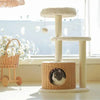Understanding Feline Emotions: How Long Does a Cat Hold a Grudge?
Cats have long intrigued both pet owners and scientists with their mysterious behavior and emotional intelligence. Their ability to express affection, independence, and even anger reveals a complex social and cognitive framework. One commonly debated topic among pet owners is whether cats hold grudges—and if so, for how long? There is no simple answer, but research in animal behavior and cognitive science provides clues into how cats perceive negative experiences and how long they may remember them.
Do Cats Have the Capacity to Hold a Grudge?
Grudges imply a deliberate retention of negative emotions toward someone who has wronged us. In humans, this is tied to cognitive processes like memory, empathy, and sustained resentment. While cats certainly remember both positive and negative experiences, whether they hold grudges in the human sense is still subject to scientific debate. Cats demonstrate associative memory, a type of learning where they link certain experiences with positive or negative outcomes.
For example, if you accidentally step on your cat’s tail, the cat might avoid you afterward or act skittish. This doesn't necessarily mean the cat is "mad" at you, but rather it has associated your presence with pain. According to Dr. Kristyn Vitale, a leading animal behaviorist, cats form memories based on their interactions, but these are usually short-lived unless the incident was traumatic. Therefore, the idea of a cat holding a long-term grudge is more of an anthropomorphic interpretation than a verified behavior.
How Long Does a Cat Remember Negative Experiences?
Studies suggest that cats have both short-term and long-term memory, especially when it comes to safety, food, and social interactions. Their short-term memory typically lasts around 16 hours. However, long-term memory can be retained for months or even years, especially if the emotional impact was significant. This means that if a cat had a dramatically negative experience—like being frightened by a loud object or mishandled by a human—it could associate that memory with distress for a long time.
However, it's essential to differentiate memory from resentment. A cat avoiding someone who yelled or sprayed water at them may be acting out of self-preservation rather than a personal grudge. Scientists like Dr. John Bradshaw, author of "Cat Sense," emphasize that cats are primarily driven by survival instincts. If a situation feels unsafe, they adapt accordingly, which might look like a grudge to us, but it’s actually learned behavior.
Signs Your Cat May Be Upset
While cats don't write emotional memoirs or plot revenge, they show signs of stress or discomfort through body language and behavior. If your cat is avoiding eye contact, hiding more often, refusing food, or acting aggressively, it might be reacting to a negative association. Understanding your cat’s behavioral cues is critical to distinguishing between a temporary emotional response and deeper stress.
Moreover, consistency in how you interact with your cat can play a significant role in building trust over time. Cats are creatures of habit, and even minor disruptions or emotional triggers can lead to behavioral changes. Recognizing early signs of distress allows pet owners to intervene and reassure their cats before the issue escalates.
Can You Help a Cat "Forgive" and Move On?
Yes, you can rebuild a cat’s trust, but it often requires patience and sensitivity. If your cat seems to be giving you the cold shoulder, gentle engagement is key. Avoid forcing interaction, and instead offer positive reinforcement through treats, playtime, and calm vocal interactions. Gradually, most cats will disassociate the negative memory from your presence and resume normal social behavior.
Adding consistency in feeding routines and creating safe, predictable environments can also help restore trust. You can even try anti-anxiety tools like pheromone diffusers or interactive toys that distract from stress triggers. Cats love structure and predictability, so the more secure they feel, the less likely they are to hold onto fear-based behavior. Ultimately, time, patience, and love are your best tools for helping a cat move past negative experiences.
Conclusion: The Psychology of a Cat’s Memory
So, how long does a cat hold a grudge? While they may remember traumatic or unpleasant events, science suggests they do not hold grudges in the way humans do. Instead, their behavior reflects learned associations from past experiences. Negative behavior like withdrawal or aggression usually stems from discomfort or fear, not personal resentment.
Understanding the science behind feline emotional response can help caregivers provide better environments and stronger bonds with their pets. By respecting your cat's space, reinforcing positive experiences, and being patient, you can ensure that negative memories don’t define your long-term relationship. In the end, compassion and understanding go a long way in helping your feline friend feel secure and loved.


































